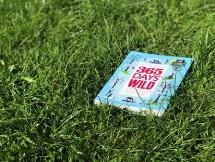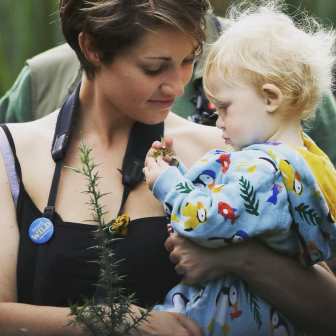Putting pen to paper for aspiring nature writers, by Lucy McRobert
This post is greater than 6 months old - links may be broken or out of date. Proceed with caution!


Lucy McRobert is a wildlife storyteller, nature lover, campaigner and communications expert, visit her website or follow her on Twitter and Instagram
The headlines
- Nature writing is as much about people as it is about wildlife
- It covers a swathe of genres, from crime to romance, journeys, field guides and discovery
- Gone are the days of middle-aged men pontificating about daffodils and clouds
- Can be published anywhere: magazines, newspapers, websites, books, blogs, social media
- Not a full-time career: no nature writers make enough to support a full-time income (sorry!)
I’ll tell you a secret: I don’t like the term ‘nature writing’. It feels wrong to force nature – the biggest topic in the world – into one genre.
There are traditional nature writers like Robert Macfarlane, Stephen Moss, Dominic Couzens and Simon Barnes who have been kicking around for years now (sorry, guys!) – and a marvellous job they’ve done, too. The genre is rapidly expanding though. Following in the footsteps of Richard Mabey, Isabel Hardman, Joe Harkness and Lucy Jones have tackled issues surrounding mental health and nature. Jini Reddy’s Wanderland (Bloomsbury, 2020) looks at finding magic in the landscape, embracing an eco-spiritual connection with nature, whilst Anita Sethi has just signed a three-book contract with Bloomsbury: I Belong Here. Dara McAnulty has published Diary of a Young Naturalist (Little Toller, 2020) at sixteen years old. Tiffany Francis-Baker, Melissa Harrison, Ben Macdonald and Tessa Boase are amongst the newer pens. I could go on. There’s a perception that the genre is dominated by men and that was once true, but three of the most successful nature books have been by women: Helen MacDonald, Amy Liptrot and Isabella Tree.
But what about Harry Potter, Wuthering Heights, Bill Bryson’s travelogues, the Gruffalo? Philip Pullman’s His Dark Materials played a huge role in my teens and was my first experience of feeling nature through words. I could easily believe that the best part of ourselves, our souls, could be wild, nature, animal.
RobLambert.jpeg)
Since childhood, I have wanted to be an author. I’m sure my mum harboured great hopes for the clarinet lessons, the netball team, art classes, gymnastics, French, hockey, but I always came back to writing. A few years ago, I was attending a course and was asked for a personal aspiration. I said I wanted to be a published author by my 30th birthday. Six months later I signed my first book contract; within 18 months I delivered the manuscript and in under two years I had published 365 Days Wild (William Collins, 2019), at the age of 28.
I’ve been working in conservation since University, but unlike many conservationists I barely have a qualification in science (GSCE was the best I could do). That has given me a spiritual, people-focused relationship with nature. When I write about wildlife, I like to inject humour, historical context, frustration, anecdotes, self-deprecation, learning and mistakes. My style is down-to-earth. Others are brilliant at writing calls to arms and visions for the future, lyrical and poetic prose, or unpicking ecological and conservation theories.
My first foray into nature writing came as a voluntary blogger and writer for a couple local Wildlife Trusts. I wrote a few pieces for the wildlife magazines, like Birdwatching. My personal blog gained attention when I wrote about badger culling; I was picked up by Birdwatch magazine as a columnist (which I still do today) and by Northbank Talent Agency. Their expertise has been invaluable in negotiating advances, explaining complicated contracts and in shaping ideas. I was also the researcher on Tony Juniper’s What Nature does for Britain (2015).

Anyone can be a nature writer. Publishers are searching for different voices and stories, but your idea does need to be special for them to take a chance on you. They’re investing in you, so listen to feedback. Offer something that no one else has. You need to understand advances, royalties, payments, contracts, timelines and you don’t need to accept the first offer that comes along. This is your intellectual property. It is a competitive world, though, and others may have a similar idea. Don’t brainstorm ideas on public forums, like Twitter.
There are very few, if any, nature writers who make a full career out of it. Most have a portfolio of work. Newspapers and magazines aren’t highly lucrative and contacting the right editors can be tricky. You will get asked to write for free. There’s a fine line between getting your name out there, being paid fairly and not undermining others who are reliant on nature writing for income.
It’s exciting to see new voices breaking through – particularly women, ethnic minorities and young people. We need new frames for seeing nature, new ways of talking about it, and that’s happening right now. To help, here are my top five pointers when thinking about your own writing.
- Use first-person, present tense sparingly
This was very fashionable five years ago. It can be very powerful but is generally harder for the reader to get into. Past tense is more narrative. - Use personal experiences and personal voices
Nature writing is as much about people as wildlife; we are part of nature. You will frame nature based on your experiences – embrace that. - Beware adjectives and adverbs
Not everything in nature is beautiful, inspiring, fabulous, amazing, inspiring, passionate, inspiring, amazing. Don’t over-do descriptions, similes and metaphors. - Look for new stories
Trying to find something different to say is hard; if you can’t find completely new stories, try to find new ways of retelling old stories. - Learn some storytelling theory and techniques
Learn classic story outlines: quest, David vs Goliath, rebirth, tragedy and so on. Fitting your story to an existing narrative will resonate subconsciously with the reader.
Happy National Writing Day, and good luck!
Lucy x
More from Lucy McRobert